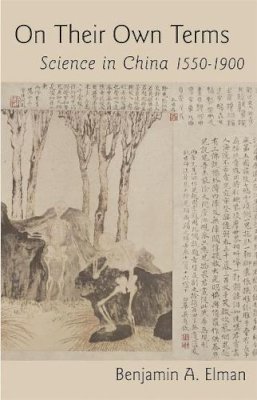
On Their Own Terms
Benjamin A. Elman
In On Their Own Terms, Benjamin A. Elman offers a much-needed synthesis of early Chinese science during the Jesuit period (1600-1800) and the modern sciences as they evolved in China under Protestant influence (1840s-1900).
By 1600 Europe was ahead of Asia in producing basic machines, such as clocks, levers, and pulleys, that would be necessary for the mechanization of agriculture and industry. In the seventeenth and eighteenth centuries, Elman shows, Europeans still sought from the Chinese their secrets of producing silk, fine textiles, and porcelain, as well as large-scale tea cultivation. Chinese literati borrowed in turn new algebraic notations of Hindu-Arabic origin, Tychonic cosmology, Euclidian geometry, and various computational advances.
Since the middle of the nineteenth century, imperial reformers, early Republicans, Guomindang party cadres, and Chinese Communists have all prioritized science and technology. In this book, Elman gives a nuanced account of the ways in which native Chinese science evolved over four centuries, under the influence of both Jesuit and Protestant missionaries. In the end, he argues, the Chinese produced modern science on their own terms.
Product Details
About Benjamin A. Elman
Reviews for On Their Own Terms
Marta E. Hanson
American Historical Review
On their Own Terms is a fascinating and impressively scholarly study of the way in which the science of the west was selectively and effectively taken up by the Chinese...This book is a major contribution to the understanding of many things from the motives and methods of the Jesuits to the history of mathematics.
Chronique
While many of the landmarks in this magisterial study by Benjamin A. Elman may be familiar, he connects some of them in new and interesting ways. Among these are the parallels that Elman draws between "natural studies and the Jesuits" of the seventeenth and eighteenth centuries, and "modern science and the Protestants" of the nineteenth century. Heretofore, these two fields were seldom studied by the same scholars, much less either compared or melded into one narrative.
John Henderson
International History Review
